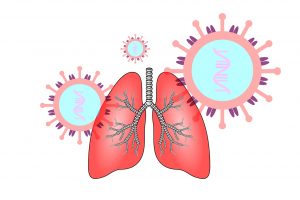Tobacco use is a public health issue that negatively impacts your finances. Learn how tobacco use can impact other areas of your life, such as productivity and disease risk, to understand the dangers of tobacco. In this blog post, we will be discussing how does tobacco use negatively impact personal finances. We’ll also look at how tobacco use can lead to other problems in people’s lives including their productivity and potential for developing serious diseases like cancer, heart disease, and lung disease.
Health Risks of Smoking Tobacco
There are lots of healths of smoking tobacco that need to be taken into consideration. According to the Centers for Disease Control and Prevention, smoking cigarettes is considered one of the leading preventable causes of death in the United States. Smoking has been linked with increased incidences of cancer, heart disease, stroke, respiratory diseases like chronic obstructive pulmonary disorder (COPD), infertility problems in men and women, erectile dysfunction in men.
Other ways smoking tobacco affects your health:
- Increases risk for asthma
- Staining of the teeth and fingers, bad breath, yellowed fingernails/toenails.
- Decreased fertility in men & women. Men are at higher risk due to sperm damage that can lead to infertility problems or genetic abnormalities with babies if pregnancy occurs while smoking cigarettes. Women are at risk due to infertility problems.
- Increased infection rates because smoking decreases the immune system’s ability to function properly and protect against diseases like pneumonia or tuberculosis.
- Birth defects in children of pregnant smokers, including low birth weight, cleft palate/lip, respiratory distress after birth (breathing problems), SIDS (sudden infant death syndrome), and increased risk of miscarriage.
- Cigarette smoke contains carbon monoxide which attaches to the red blood cells that carry oxygen throughout your body. This decreases how much oxygen reaches your tissue, including those in your heart, brain, and other organs.
In addition to these health risks from smoking cigarettes, there are also financial costs to consider.
We spend money on our health and it’s important that we’re doing all we can to protect this investment. Tobacco use is expensive, not only because you have to keep buying cigarettes but also due to the high medical bills for the treatment of smoking-related illnesses or diseases like cancer or lung disease.
According to The Truth Initiative, each year cigarette smoking costs the United States more than $170 billion in direct health care expenses and lost productivity. Smokers’ medical bills are an average of about three times higher than a non-smoker’s annual expenses.
Smoking also has a big impact on work productivity as employees who smoke cost their employers twice as much due to missed days of work, lower productivity on the job because they are often sick or injured from smoking-related illnesses and diseases.
Smokers miss about four times more workdays than non-smokers due to sickness; when they do show up for work, smokers cost employers $17 per day in lost productivity compared with an average of only $11 for other employees. The average annual cost of lost productivity due to smoking for all smokers is $752 per year, which amounts to an estimated total of about $193 billion each year nationally.
Smokers are also more likely than non-smokers to use drugs and alcohol, resulting in additional medical expenses related to substance abuse treatment as well as increased costs to employers for health insurance and workers’ compensation claims.
The average annual cost of lost productivity due to smoking can be as high as $752 per year, which amounts to an estimated total of about $193 billion each year nationally. This is not even taking into account the money smokers spend on cigarettes themselves! You could use that money instead towards something you really want.
Smokers also need to consider how their smoking habits impact the amount of money they can qualify for when it comes time to buy a home or car, get life insurance, etc. Many companies will not hire smokers because of increased health care costs and decreased productivity on the job. This means that many jobs are off-limits for smokers.
Smokers are also more likely to have problems getting health insurance, with some companies charging smokers up to 50 percent more for individual coverage or 30 percent more for family plans than non-smoker rates. This can make it difficult if not impossible to afford medical care when you most need it, especially in times of illness or injury.
The vicious cycle of poor financial health and poor mental health can

Smokers who also suffer from mood disorders such as anxiety or depression are less likely than other people to be successful at quitting and more likely to relapse, according to a study published in the journal Addiction Research & Theory.
Smoking cigarettes has been shown time and again by medical science research studies to be a health hazard. There are also economic factors to consider as well including medical expenses, lost productivity due to smoking-related illnesses or diseases, and decreased job opportunities among other things.
CNote & HIP Webinar Recording: Income + Impact, Investing in Volatile Times
How does tobacco use negatively impact your finances? Tobacco is expensive. The cost of smoking cigarettes per year is very high for most smokers. This is just the initial out-of-pocket expense; it doesn’t include health care costs or lost wages due to work missed because of illness (or increased sick days).
What is the impact of tobacco on your finances? When you consider that most smokers who quit do so because they want to save money, and then they end up saving more than $300 a month (the average), it’s clear that quitting smoking can make a big difference in one’s personal finance. On top of that, the average person who quits smoking will live about seven years longer.
Tobacco use is linked to other harmful behaviors in teens
In a study of over 19,000 teens in the United States, researchers found that smoking and drinking were strong predictors for “early engagement” in other unhealthy behaviors such as drug use and sexual activity at an early age.
Excessive Alcohol Intake and Tobacco Use
Alcohol and tobacco use are often associated with one another, especially in some high-risk populations.
The more adults drink every day, the greater their risk of smoking becomes; this combination is particularly prevalent among alcoholics and binge drinkers.
Pregnant Women’s Tobacco Use
Not only are pregnant women advised to abstain from tobacco use while they are expecting a child, but they are also at a greater risk of contracting other diseases.
The compounds in cigarettes and chewing tobacco, such as nicotine, can easily pass through the placenta from a pregnant woman to her fetus.
Cigarette smoking while expecting not only affects the health of both mother and child during pregnancy but has been linked with reduced fertility rates in both sexes.
Medicaid’s Impact on Health Care Access, Outcomes, and State Economies
It is estimated that over 30% of people in the United States who are eligible for Medicaid or CHIP (children’s health insurance program) do not participate, but new initiatives have been put into place to encourage greater enrollment.
A 2011 study found that states with higher rates of tobacco use also had lower overall participation rates by residents who were eligible for these programs.
As of 2012, states must offer Medicaid coverage to all individuals who are not otherwise eligible for medical assistance and meet the federal poverty level (FPL), which is based on household size; this requirement includes children up to age 19 whose family income does not exceed 133% of FPL.
Emotional and mental health
Mental and emotional health is also affected by tobacco use along with physical health because of its harmful chemicals.
A study of older adults found that those who smoked were twice as likely to develop depression compared with their nonsmoking peers, and this rate increased significantly when participants had a history of mental illness or substance abuse.
Smokers admitted to having more than one psychiatric diagnosis in comparison to non-smokers at the time of the study, and the differences were even greater among those who had a history of mental illness.
How smoking tobacco affects your heart and blood vessels?
a. Tobacco contains nicotine, which is a stimulant and can make your heart race faster. Over time, this may lead to high blood pressure (hypertension).
b. Nicotine in tobacco smoke narrows the arteries that supply blood to your heart muscle by causing these muscles to tense up (constrict) and become stiffer.
c. Nicotine may also create more plaque buildup in your arteries which can lead to high blood pressure and heart disease by increasing your risk of a stroke, coronary artery disease (CAD), and/or chronic obstructive pulmonary disorder (COPD).
d. Smoking is considered the number one cause of preventable deaths worldwide.
e. Tobacco use increases your risk of developing coronary artery disease (CAD).
f. Smoking leads to plaque buildup in the arteries, which reduces blood flow to the heart and may lead to a heart attack if part of the plaques breaks off as a clot that blocks an artery leading to the heart. This is called Coronary Artery Disease (CAD).
g. When the arteries that supply blood to your heart muscle become narrow or blocked, you can develop coronary artery disease (CAD) and other serious health problems related to smoking tobacco like lung cancer, COPD, stroke, and/or chronic bronchitis.
How smoking tobacco damages your lungs?

Smoking tobacco damages the lungs. This damage can cause a wide range of health problems, including chronic obstructive pulmonary disease (COPD), which includes emphysema and chronic bronchitis. Smoking causes about 90% of COPD deaths in men and women each year in the United States (CDC).
Why do people who smoke have a “smoker’s cough?”
Breaking it down: Tobacco can cause chronic obstructive pulmonary disease (COPD) and emphysema, which is an inflammatory lung condition. These diseases lead to a persistent cough that may last for weeks or months at a time. This smoker’s “cough” is the result of phlegm buildup in your airways due to the repeated irritation and inflammation caused by inhaling tobacco smoke.
What percentage of adults deaths is attributed in part to smoking?
In an article from the Centers for Disease Control and Prevention, it is said that “nearly half of all adults who smoke cigarettes in the United States die from a smoking-related illness.” The CDC goes on to say that, “14.8% of all deaths among male smokers are caused by their addiction to tobacco products.”
“Cigarette smoking causes about 1 in every 5 deaths in the United States each year—more than 480,000 deaths per year.” The article cites research conducted by the American Cancer Society in 2014 which said 26 percent of all cancer deaths are due to tobacco. This number is lower than the CDC’s estimate which was published in 2013, but it continues to be used because of its consistency with most other national studies.
What Is a Sin Tax?
A “sin tax” is a general term used to describe any kind of excise or special tax that governments use to deter certain types of behavior. Tobacco is one type of product with its own sin taxes, meant not only as an incentive for people not to smoke but also as a way for governments around the world to raise revenue without affecting the overall tax rate.
The United States and Canada each have a sin tax on cigarettes, for example: in America, it’s $0.61 per pack while in Canada it’s more than double that at $12 CAD per carton of 200! Cigars also carry their own set of taxes, with federal excise taxes ranging from about 40-50% depending on the type of cigar.
What happens when you quit smoking?

1.) Your breath and clothes will smell better!
2.) You are also going to have more money in your pockets.
3.) Quit now and receive all those benefits without any of the negative side effects like cancer or heart disease.
4) Your chance of having a stroke will be cut in half and you may live up to 10 years longer than if you still smoked cigarettes.
5) Qu now has so many health benefits-it really pays off!
6.) You could put that extra cash towards something else like buying gifts for loved ones or putting them away for a vacation down the road.
7.) Nicotine Anonymous is an organization you can join in your area to help with quitting smoking.
8.) Quitting may be hard but with the right help, you can quit smoking for good! Continue reading to learn even more benefits of quitting smoking.
9.) Quitting now has so many health benefits-it really pays off!
10.) Your chance of having a stroke will be cut in half and you may live up to 10 years longer than if you were still a cigarette.
11) You could put that extra cash towards something else like buying gifts for a loved one or putting it away for a vacation down the road.
12.) Nicotine Anonymous is an organization you can join in your area to help with quitting smoking.
13) Quitting may be hard but with some help, you can quit smoking for good!
how to stop spending money on tobacco use
In order to stop spending money on tobacco use there are some steps you can take:
- First, evaluate your motivation for quitting so you know if it’s worth it for you personally.
- Second, find new ways to deal with stress such as exercise or yoga.
- Third, try to stop smoking and chewing tobacco in one go (this is harder than quitting little by little); fourth, find support from family or friends.
- Finally, it’s important to remember that quitting isn’t easy but with the effort it is possible.
Read more about why is personal finace important?
Final Thoughts
In conclusion, tobacco use has been shown to have a negative effect on your finances. By understanding how this occurs and what you can do about it, hopefully, we will be able to quit smoking for good! If that is not an option for you right now then at least take steps to cut down on your usage of cigarettes, cigars, or chewing tobacco. I hope you have learned about how does tobacco use negatively impact personal finances through this article and the best ways how you can control it for good reasons.


2 thoughts on “How Does Tobacco Use Negatively Impact Personal Finances? – 4 Great Ways to Prevent”